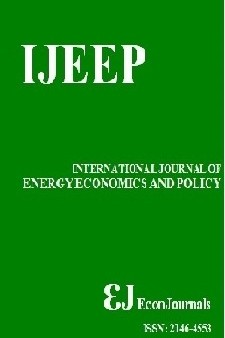Innovations as Drivers of Stable Growth of the Kazakh Economy through State Policy in Area of Eco-innovations Implementation
Innovations as Drivers of Stable Growth of the Kazakh Economy through State Policy in Area of Eco-innovations Implementation
Eco-innovations, Green Technologies Green Power Industry, National Innovational Strategy, Energy Efficiency, Energy Ratio, Resources of Renewable Energy Sector,
- Başlangıç: 2011
- Yayıncı: İlhan ÖZTÜRK
Uncertainty of Oil Proved Reserves and Economic Growth in Iran
Elaheh Asadi Mehmandosti, Fatemeh Bazzazan, Mir Hossein Mousavi
Oil Price and Exchange Rates: A Wavelet Analysis for Organisation of Oil Exporting Countries Members
Basheer H. M. Altarturi, Ahmad Alrazni Alshammri, Tuan Muhd Taufik Tuan HUSSİN, Buerhan SAİTİ
Transparency in Nigeria’s Oil and Gas Industry: Is Policy Re-Engineering the Way Out?
Olabode A. OYEWUNMİ, Olusola J. OLUJOBİ
Muji SETİYO, Sudjito SOEPARMAN, Nurkholis HAMİDİ, Slamet WAHYUDİ
Rodolfo Garcia Sierra, Alvaro Zerda Sarmiento
Mohammad Nasre ESFAHANİ, Ehsan RASOULİNEZHAD
Co-integration between Electricity Supply and Economic Growth in South Africa
Hlalefang KHOBAİ, Sanderson ABEL, Pierre Le ROUX
Munshi Naser Ibne Afzal, Jeff Gow
The Effects of Electricity Consumption on Agriculture, Service and Manufacturing Sectors in Malaysia
